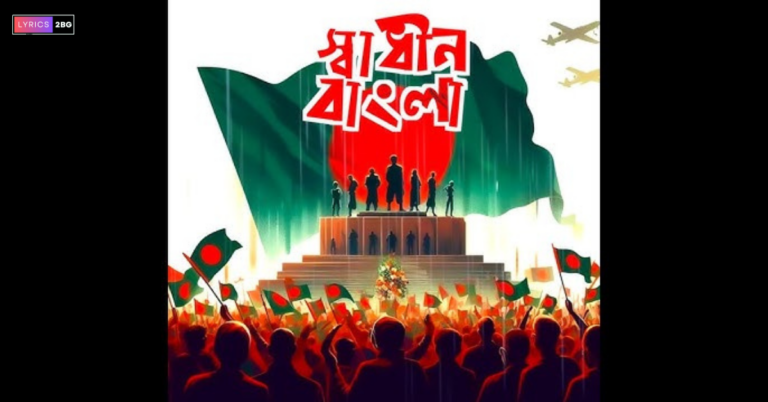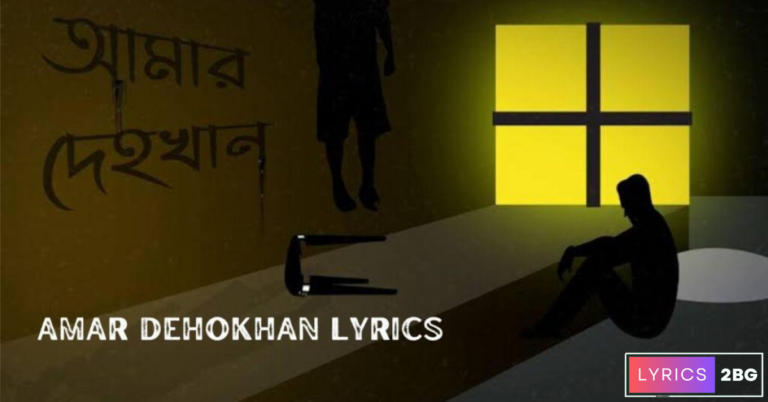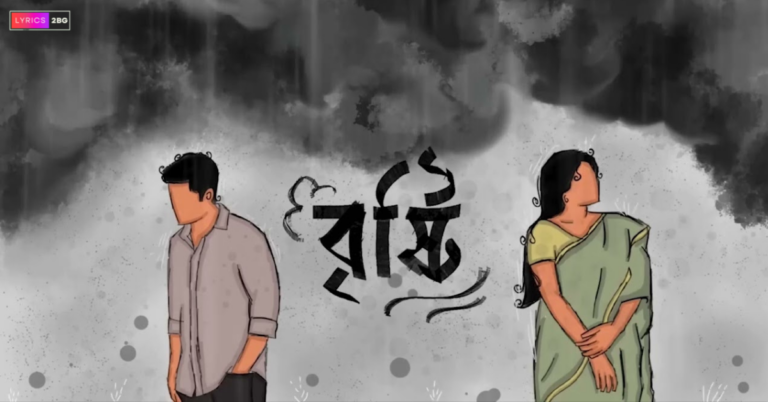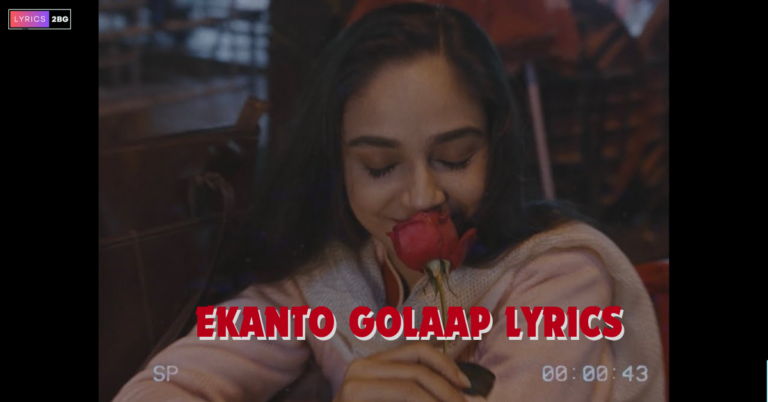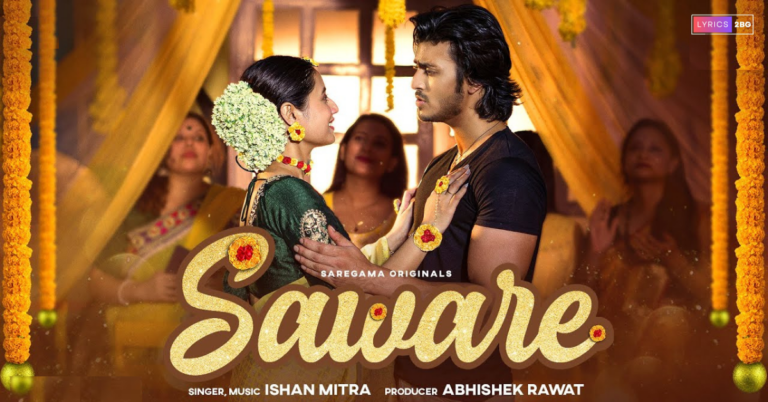Tilottomar Gaan Lyrics | তিলোত্তমার গান | Dr. Soumik Das
Tilottomar Gaan Lyrics
রাত কবিতারা বলে গেছে সোচ্চারে
নামবেনা আর মেঘজমা এ শহরে
রাতের দখল মেয়েদের হাতে রয়ে যাক
শুনবনা কোন কিচ্ছুই আজ আর
ভিতর বাইরে জমে থাকা চিৎকার
আছড়ে পড়ুক চারিদিকে ভয়টুকু থাক
রাত কবিতারা বলে গেছে সোচ্চারে
নামবেনা আর মেঘজমা এ শহরে
রাতের দখল মেয়েদের হাতে রয়ে যাক
এ শহর চেনে আমাদের সবকিছু
জানে প্রতিরোধে লাল হয় রাজপথ
শাসক তোমার অস্ত্রে যত দাও শান
বাড়ুক মিছিল পুড়ুক মুখোশগুলো
ঘামে ধুয়ে যাক অভিমানে জমা ধূলো
ধ্বংস আসছে ঐ দ্যাখো উড়ছে নিশান।
এ শহর চেনে আমাদের সবকিছু
জানে প্রতিরোধে লাল হয় রাজপথ
শাসক তোমার অস্ত্রে যত দাও শান
বাড়ুক মিছিল পুড়ুক মুখোশগুলো
ঘামে ধুয়ে যাক অভিমানে জমা ধূলো
ধ্বংস আসছে ঐ দ্যাখো উড়ছে নিশান।
রাত কবিতারা বলে গেছে সোচ্চারে
নামবেনা আর মেঘজমা এ শহরে
রাতের দখল মেয়েদের হাতে রয়ে যাক
শুনবনা কোন কিচ্ছুই আজ আর
ভিতর বাইরে জমে থাকা চিৎকার
আছড়ে পড়ুক চারিদিকে ভয়টুকু থাক
Meaning of Tilottomar Gaan Lyrics
Tilottomar gaan lyrics is a powerful and evocative piece of poetry set to music, reflecting a deep sense of resistance, empowerment, and societal transformation. The song paints a vivid picture of a city and its people, caught in a struggle against oppression and injustice, while also celebrating the resilience and strength of women in this context.
Tilottomar gaan lyrics theme of the night and its symbolism is central to the song. The night is portrayed as a canvas for rebellion and change, a space where traditional norms and constraints are challenged. The line “রাত কবিতারা বলে গেছে সোচ্চারে” (The night’s poems have spoken out loudly) suggests that the night has its own voice, one that speaks truths and stories that are often silenced during the day. This voice, however, is not just a passive observer but an active participant in the city’s struggle.
Tilottomar gaan lyrics mention of “মেঘজমা” (clouds and storms) indicates a past or present turmoil that is not welcome in the city anymore. The speaker declares that these metaphorical clouds will not descend upon the city again, symbolizing a rejection of previous forms of chaos and oppression. Instead, the night’s dominion should remain in the hands of women, emphasizing their role in leading and shaping the future.

Tilottomar gaan lyrics further expresses a strong sense of defiance and refusal to listen to the prevailing narratives of fear and suppression. The phrase “শুনবনা কোন কিচ্ছুই আজ আর” (I will not listen to any stories today) underscores a deliberate choice to ignore the outside noise and internal turmoil that might seek to undermine the movement. The speaker insists on letting the fear and chaos crash around them, suggesting a willingness to confront and endure the upheaval as a necessary part of the fight.
The city’s awareness of its own history and struggle is highlighted with the lines “এ শহর চেনে আমাদের সবকিছু” (This city knows everything about us) and “জানে প্রতিরোধে লাল হয় রাজপথ” (It knows that the streets turn red in resistance). The city is depicted almost as a living entity that is intimately familiar with the resistance movements that have taken place. The streets turning red symbolize bloodshed and sacrifice in the name of freedom and justice.

The defiant tone continues with a challenge to the authorities: “শাসক তোমার অস্ত্রে যত দাও শান” (Ruler, no matter how sharp you make your weapons). The rulers’ attempts to suppress dissent with force are met with a call for increased resistance. The imagery of rising processions (“বাড়ুক মিছিল”) and burning masks (“পুড়ুক মুখোশগুলো”) signifies the unmasking of falsehoods and the cleansing of accumulated grievances.
Tilottomar gaan lyrics final lines emphasize the transformative power of the uprising. The imagery of sweat washing away accumulated dust and the fluttering of banners signify both the physical and symbolic cleansing that comes with the overthrow of oppressive systems. The repeated lines reinforce the sense of an impending, inevitable change where the old order is to be dismantled, and new possibilities arise.
Overall, tilottomar gaan lyrics is a powerful anthem of resistance and empowerment. It celebrates the strength of women and the resilience of the people in the face of oppression. The night, a symbol of both darkness and potential, is portrayed as a space where these transformative changes can take place, reflecting a deep desire for societal upheaval and renewal.
Song : Tilottomar Gaan
Written, Composed & Performed By: Dr. Soumik Das


